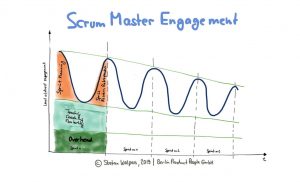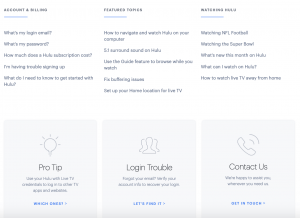There was something intrinsically cool about it first. The ‘Like’ that Facebook gave to the world was easy to recognise, universal (a thumbs up means the same in pretty much any language) and also very, very simple.
In the heyday of Facebook (it is changing and will probably not be what it is now in five years time), it was a cool symbol that almost marked you out as a social outcast if you didn’t use it on a daily basis. Now, the Like has become almost old-fashioned.
Brands are still scurrying around to gather more Likes, but it is clear that it is not the only thing they should be pursuing on Facebook. More importantly, it has little impact on revenue. Or does it?

How did the Like become unliked?
The Like was an easy indicator of popularity. It makes perfect sense to say that the more Likes you have, the more popular you are. So when a celebrity has a gazillion Likes on their post, it doesn’t look stupid, or meaningless. They are a celebrity and they are popular. Having a large number of likes must mean that you are popular.
However, it may well mean that you are popular, but put the Like firmly in the business world and things become a little skewed. At first, popular and trusted businesses did indeed have a lot of likes. And people who were perusing feeds did find themselves attracted to brands with the most likes because that hinted at the possibility of real social proof.
Social proof is indeed a positive byproduct of having a Like strategy, but it is not the only thing brands need to be concerned with. If you’re still pursuing Likes for your clients, you need to ask yourself what you are trying to achieve.
At the same time, social proof is not a bad thing. Take a look at the pages of your client’s competitors. What do you feel when you see a competitor with more Likes? How about fewer Likes? It’s weird, right? Likes mean something to human beings, so they still have social value. The only problem is that some brands are literally chasing Likes because they think that is what Facebook is all about.
It isn’t what the platform is all about. It may have been once, and it is a big part of personal accounts. But when it comes to business, there is a need for a much more developed strategy to be in place. And Likes are just a part of that, nothing more.

The space that a Like fills
Likes do have a place in your strategy, but only when they are used in combination with a number of other aspects of social media marketing. As with many social media platforms, no brand will ever get any kind of ROI unless money is involved. In fact, it is now common knowledge that if you want to market to a demographic on Facebook, you have to spend a budget and spend it on a consistent basis.
Brands that have a lot of Likes already have an advantage, but it won’t cut it in the huge business arena on the platform. Paid advertising is the next step, the next link in the chain. By combining high quality paid ads that are incredibly tuned-in to the demographic that hit the Like button in the first place, you are presenting the customer with a double-whammy.
They have expressed a Like for your brand, and then they are presented with a clear and creative argument for purchase. This cannot be emphasised enough. The more that brands and their agencies join the dots between Like marketing (where Likes are all that matter in the strategy) and paid ads, the more ROI they will see. And that is real ROI, because ads if done well, can result in sales.
So there is a space there for the Like, it’s part of the puzzle.

Earn it
Earned media, which includes influencer marketing and testimonials and so on, is the other part of the puzzle. Social proof (the most important concept in this post) is amplified and made even more effective the more you do it. And it gets louder and sexier if you have Influencer Marketing as part of your strategy. Testimonials or videos with Influencers in them are great, and they work.
Joined-up thinking between brands is also now a thing. McDonald’s, Coke and Google showed how this can be converted into major social proof and brand amplification in a recent campaign. It is something that can be done simply by working with brands that your client has a connection with, that they complement.
Earned media, where work and/or money go into the equation, are the perfect partner for a Like. The Like has to seem almost like an add-on. Sure, we know you’re popular, we’ve just seen the video with that partner brand and it rocked.
Or something like that.
You get the picture. Likes are still very important, but only if they are the bedrock of an overall image and branding that is aimed squarely at a demographic, intelligent, and very much earned.

One way you can tell if Likes and only Likes are working for you? Easy. Just check the figures. If engagement is there and you are just following a free model where you chase Likes, congratulations. You’ve just proven the entire business world wrong. We think this may not be the case.
Facebook’s ‘paid model’ for brands has always been there, in the shadows. Now it has become a real thing. We know agencies don’t just chase Likes anymore and hope they stick. But are you focusing on a whole package? Is that social proof comprehensive, compelling?
Digital & Social Articles on Business 2 Community(49)








